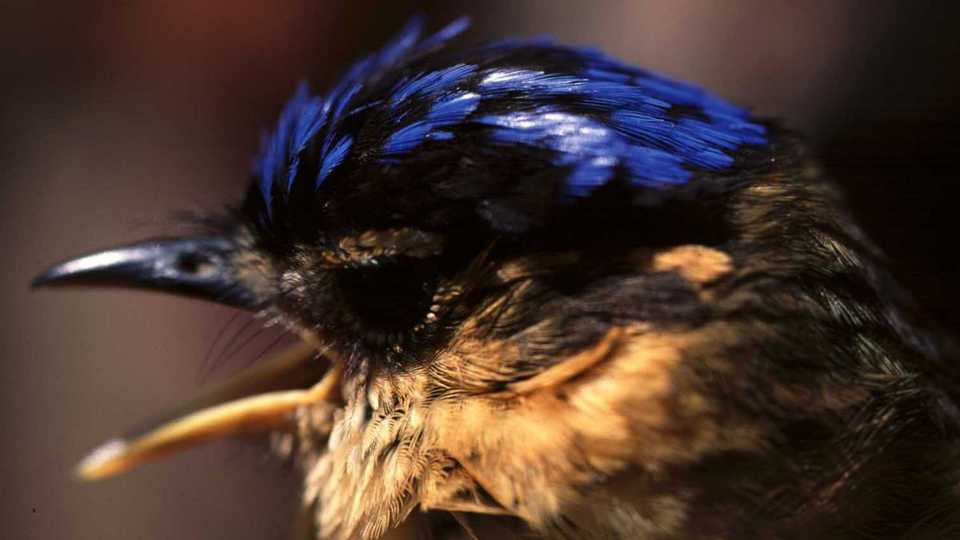Department: Ornithology & Mammalogy
Title: Curator of Ornithology and Mammalogy
Expeditions: 28
Most Recent Expedition: Namibia
Profile Videos:
What Magic Is
The Elegance of Evolution
Rare Poisonous Birds
Related Websites:
Jack's IBSS profile

Seven questions with Dr. Jack Dumbacher, Chairman and Curator of the Academy's Department of Ornithology and Mammalogy.
The Academy is a vibrant research institution. Our specialty is reaching out to the public. We're not training undergraduate students. We want this to be the place where young scientists and bright kids can get their science fix. We want the Academy to be a place for kids to get engaged with science. We have a direct effect on the public—we affect kids, grandparents, and everyone in between.
I was doing a double major at Vanderbilt in biomedical and electrical engineering. One summer I took a trip to Baja with a natural history professor who was doing all his work outdoors. I said to myself, “I want to do this for the rest of my life.”
It's an amazing place. Working in New Guinea is like going back in time. I've spent 15 years working in New Guinea and still know almost nothing about the species that live there. We have names for most of them, but we know very little about them.
It could be an evolutionary adaptation in birds. Both males and females are brightly colored, so the bright coloration might be a warning that says to predators, “I'm poisonous! Stay away.” There are eight species of hawks that could feed on pitohui. The poison certainly acts as a chemical defense against the local people. They won't eat the birds. And the poison might act as an insecticide or repellent for ectoparasites, lice, ticks, and mites.
The toxins might be useful for medicine. Natural toxins have in the past been patented. But the more important reason is that these discoveries give us a better understanding of the world around us. They bring us closer to the natural world and provide a greater, deeper understanding of the world around us. People fall in love with nature because of stories like this. If we are going to save the natural world, people are going to have to fall in love with it.
I had a professor who used to say, “A paper not published is work not done!” If we don't share our knowledge, we haven't contributed to understanding. As scientists, we recognize we are in the middle of the largest mass extinction of life on earth. Right now, there aren't enough people who care. Until people love the natural world they won't appreciate what they've got. And they won't act to save it. The more we know about nature, the more we know about ourselves. The more we know about ourselves, the better decisions we can make about our future.
My field guides set off into the jungles with bows, arrows, and an axe. That's all they need to eat, make a fire, and build a shelter. I'm totally dependent on them when we go out into the field. They know which trees to touch, how to build a fire in the pouring rain. I'm their guest, and they are the most important part of the research team. I learn more from them than I do from the bird books.
Department: Ornithology & Mammalogy
Title: Curator of Ornithology and Mammalogy
Expeditions: 28
Most Recent Expedition: Namibia
Profile Videos:
What Magic Is
The Elegance of Evolution
Rare Poisonous Birds
Related Websites:
Jack's IBSS profile
Learn more about Dr. Dumbacher's research, publications, and current projects by visiting the research side of our website, home to the Academy's Institute for Science and Sustainability.
O&M collections include 135,000 bird and mammal specimens from more than 120 countries. Meet the researchers, explore projects and expeditions, and more.